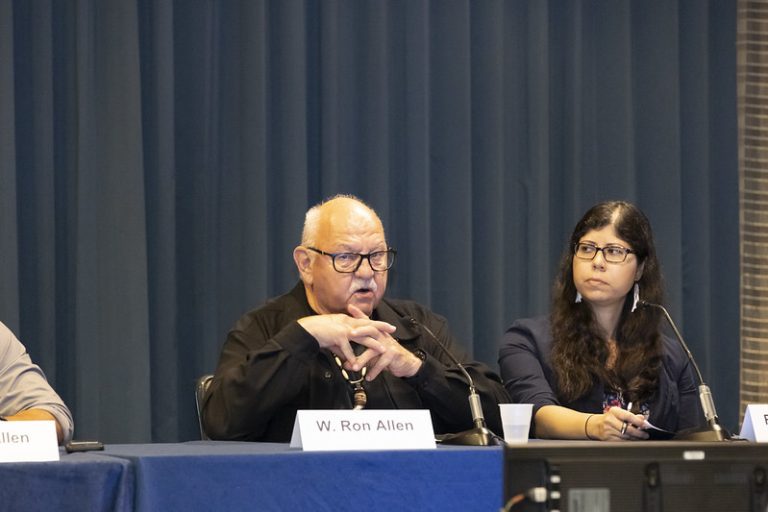Earlier today, the U.S. Department of the Treasury (Treasury) published a press release outlining that the Treasury and the Internal Revenue Service (IRS) have issued a notice of proposed rulemaking (NPRM) to implement section 139E of the Internal Revenue Code, created by the Tribal General Welfare Exclusion Act of 2014.
Included in the notice is a public hearing, scheduled for January 13th, 2025, at 10 a.m. Eastern Time. Requests to attend the public hearing must be received by 5 p.m. Eastern Time on January 9, 2025.
From The Notice of Proposed Rulemaking:
“Members of the TTAC formed a Subcommittee on the Act’s General Welfare Exclusion (GWE Subcommittee) in 2019 to provide the TTAC with technical expertise on recommendations for the implementation of the Act. On June 16, 2021, the GWE Subcommittee submitted to the TTAC a report (TTAC Report) containing the GWE Subcommittee’s interpretation of the core principles underlying section 139E, and an
Appendix containing draft proposed regulations interpreting section 139E (TTAC draft proposed regulations), consistent with those core principles. On October 26, 2022, the TTAC formally recommended and approved the TTAC Report to be submitted for the record and published for Tribal comment” (Pages 9-10)
Included in the notice are benefit requirements:
Promoting General Welfare: Provides deference to Tribes to determine, at the time their program is established, whether a benefit is for the promotion of general welfare.
“The Treasury Department and the IRS agree with the TTAC Report and the Tribal Comments that deference should be given to the Indian Tribal government in determining whether a benefit is for the promotion of the general welfare of its Tribal members or other eligible individuals. The Indian Tribal government is in the best position to determine which general welfare benefits are best suited to meet the needs of its Tribal members and other eligible individuals. As a result, these proposed regulations would not define the term “for the promotion of general welfare” or specifically provide requirements that a benefit must meet in order to satisfy section 139E(b)(2)(B)” (Page 31)
No Need Requirement: “The Treasury Department and the IRS agree with the TTAC Report and the Tribal Comments that section 139E does not prohibit an Indian Tribal government program from providing Tribal general welfare benefits to recipients in equal amounts. Accordingly, proposed §1.139E-1(d)(2) would provide that Tribal general welfare benefits may be provided on a uniform or pro-rata basis to Tribal program participants” (Page 32)
Lavish or Extravagant: “Section 139E(b)(2) provides, in relevant part, that benefits provided under the program cannot be lavish or extravagant. Section 139E(c)(3) provides that the Secretary, in consultation with the TTAC, must establish guidelines for what constitutes lavish or extravagant benefits with respect to Indian Tribal government programs.” (Page 37)
Benefits cannot be compensation for service: “Section 139E(b)(2)(D) provides that a Tribal general welfare benefit paid under an Indian Tribal government program cannot be compensation for services, with exceptions discussed in part IV of this Explanation of Provisions. However, the rule provides an exception under which any items of cultural significance, reimbursement of costs, or cash honorarium for participation in cultural or ceremonial activities for the transmission of Tribal culture “shall not be treated as compensation for services.” This exception to the general prohibition on compensation for services is addressed in part IV of this Explanation of Provisions” (Page 40).
Four items from the TTAC report that are not addressed in the new regulations include:
Interaction with other Federal programs
Grants to Indian-owned enterprises
Trust arrangements and deferred benefits
Advance rulings
“The Treasury Department and the IRS request comments on all aspects of the proposed regulations. In addition, the Treasury Department and the IRS request comments on the following specific issues:
(1) Should additional examples be included in the final regulations, and if so, what specific fact patterns or rules should be addressed by the additional examples?
(2) Should Revenue Procedure 2014-35 be obsoleted when the final regulations become applicable? If not, why is there a continuing need for it after the publication of final regulations?
(3) Do Indian Tribal governments anticipate needing any transition relief to adjust existing general welfare programs to satisfy these proposed regulations before they are finalized? If yes, please explain the nature of the transition relief needed and provide recommendations as to what relief would be helpful to Indian Tribal governments.
(4) Is additional guidance needed under section 139E or other Code sections to address the tax treatment of deferred benefits or benefits paid from trust arrangements, and, if so, what specific fact patterns should be addressed” (Pages 58-59).
NAFOA encourages tribal governments and members to submit comments and participate in the upcoming hearing process.


